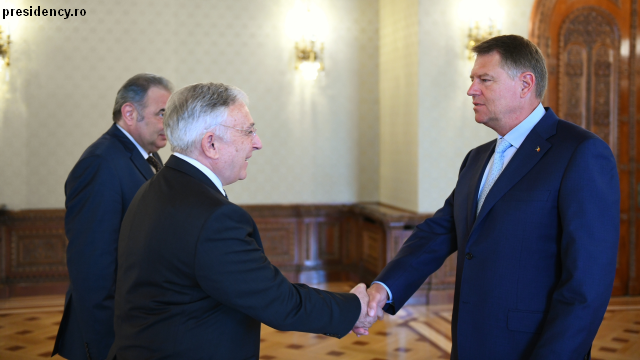Why is inflation on the rise?
Romanias President, Klaus Iohannis, held consultations with the leadership of the National Bank of Romania on the inflation–related risks Romania is currently facing.

Leyla Cheamil, 26.04.2018, 13:45
In March, the National Institute of Statistics announced that the annual inflation rate increased from 4.3% in January to 4.7% in February. It is the maximum high registered in Romania over the past five years. According to the National Institute of Statistics, the increase was registered against the backdrop of higher prices for foodstuffs, non-food products and services. Also, according to the latest forecast released in February, the National Bank of Romania revised upward from 3.2% to 3.5%, the inflation rate forecast for the end of the year and estimated a level of 3.1% for December 2019.
The report presented by the central bank governor, Mugur Isărescu, shows the main factors of inflationary pressure have been the electricity price rises, a new, higher tax on fuel, a higher demand and the growing consumption. He has warned however that the engine of economic growth continued to be consumption, which affects the economy’s external balance. Representatives of the government and of the ruling Social Democratic Party have recently accused the National Bank of Romania and the foreign investors of being responsible for the higher inflation rate, a reason for which the Romanian President, Klaus Iohannis, has expressed readiness to mediate between the government and the National Bank of Romania on this issue.
Klaus Iohannis: “This approach, to throw into the central bank’s court such issues as inflation or increasing interest rates, is deeply wrong and will not solve anything. It is completely wrong to accuse, I don’t know, foreign investors or foreign companies of increasing inflation or increasing interest rates. No, the debatable policies pursued by the Social Democratic governments related to pay schemes or in the economic and fiscal domains have produced anxiety on the market, and implicitly they led to growing inflation and the higher interest rates.”
On Wednesday, Klaus Iohannis held consultations with the central bank leadership on the risks Romania is currently facing as regards inflation and the coordination of economic policies, and he underlined how important it is for the National Bank of Romania to make monetary policy decisions independently. This is a basic condition for a EU member state, the head of state has underlined. He also said that the National Bank should show responsibility and determination in reaching the fundamental goal of ensuring the stability of prices, so as not to affect the Romanians’ incomes, by reducing the purchasing power. In turn, the central bank governor, Mugur Isărescu, has presented the main factors leading to increasing prices, which, he said, do not depend on the monetary policy pursued by the National Bank.
According to finance minister, Eugen Teodorovici, the talks scheduled for next week, between PM Viorica Dăncilă and the central bank governor, Mugur Isărescu, will focus on the inflation rate and the ROBOR index — the average interest rate set by the central bank, for loans in the national currency, the leu, granted on the inter-banking market.






























